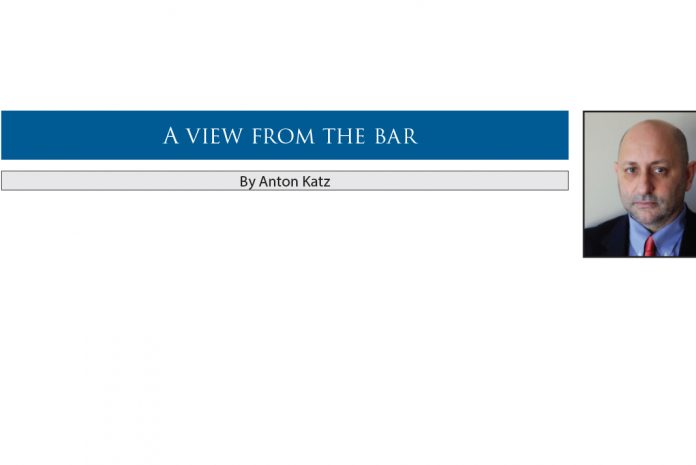By Anton Katz
In South Africa all conduct by government must not violate any of the rights in the Bill of Rights. The government includes all three tiers, that is national, provincial and local (municipalities).
It also includes governmental agencies which perform a public function. These include State owned enterprises, such as Eskom, SAA, the Post Office, and Telkom. And when government outsources its functions to a private contractor that private company or individual assumes the constitutional obligations imposed on the government.
The rights protected include the right to freedom of expression, religion, to dignity and to not be unfairly discriminated against on the basis, directly or indirectly, against anyone on one or more grounds: race, gender, sex, pregnancy, marital status, ethnic or social origin, colour, sexual orientation, age, disability, religion, conscience, belief, culture, language and birth (the equality clause). A relatively unique South African constitutional right is to administrative justice; that is before any action is taken against a person, fairness in the process is required.
The interesting and important question arises whether private parties, such as individuals and/or private groups may lawfully discriminate against a person on one of the listed grounds. Thus may a tennis club limit membership to a particular religious group. Or may a cake shop refuse to take an order for a wedding cake when the two persons marrying are of the same sex. May a church refuse to ordain same sex couples? May membership of a political party be restricted to persons who speak a particular language? May a mobile phone service only advertise and promote its product to particular race groups. What about quotas in sport? Are they permitted? Also, may a political party sanction its members if they say certain things? So, if a political party expelled a member on account of the member’s statements supporting another party’s policies would that constitute a violation of the member’s freedom expression?
The Constitution is specific about when the Bill of Rights applies. Section 8(1) of the Constitution expressly provides that “[t]he Bill of Rights applies to all law, and binds the legislature, the executive, the judiciary, and all organs of state.” The Constitution also states: “a provision of the Bill of Rights binds a natural or juristic person if, and to the extent that, it is applicable, taking into account the nature of the right and the nature of any duty imposed by the right.” So a private person or entity may not escape the consequences of the Bill of Rights. Thus, all persons, individuals and corporate entities must respect the Bill of Rights in certain circumstances. The real and only question is what are those circumstances?
Courts have not pronounced definitely on the issue yet. The issue is particularly complex and difficult when it comes to religious life.
Classically, if a religion unfairly discriminates on the basis of gender is the religion in violation of the anti-discrimination (equality) clause? Is the religion unconstitutionally violating equality rights? Were the adherents of the religion be forced to remove the discriminatory practices could they legitimately argue that their freedom of religion is violated or threatened. The exercise of their religion requires men and women to be treated differently, and it is their constitutional right to practise their religion as they deem fit. The courts have not dealt with theses burning issues yet — the balancing of the rights to freedom of religion and of association, on the one hand, and equality rights in the context of gender and/or sexual orientation on the other. Any judgment is respect of any religion will have an effect on most, if not all, organised religions in South Africa because they too differentiate between their congregants and members on various grounds. When the matter has been raised the courts have avoided pronouncing of the issues thus far. The Constitutional Court has described these disputes as being of considerable complexity and having vast public repercussions. They are not run-of-the-mill claims for equal worth. The Court correctly noted that if and when the unfair discrimination claim has been properly raised it will require all the judicial, if not Solomonic, wisdom Judges can muster right through the court system.
The bottom line is that if private persons or bodies violate the rights in the Bill of Rights they may be acting unlawfully. It will depend on the nature of the right that is violated, and how it is violated. This may be regarded as an unsatisfactory conclusion; but it will take many years of testing the limits and boundaries of acceptable (lawful) conduct in a society that is as diverse as South Africa.











